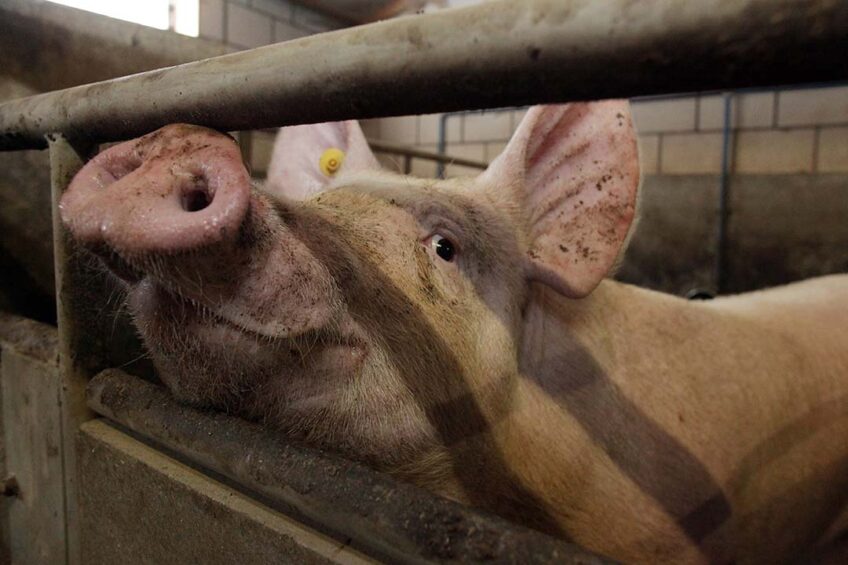Reducing pig odour with mulberry leaf supplementation

In a new study researchers in China found that mulberry leaf supplementation can reduce skatole production in pigs. Skatole is the main cause of odour emissions in pigs.
Mulberry leaves comprise various active compounds, including polyphenols, polysaccharides, alkaloids, flavonoids and steroids with an antidiabetic, antioxidant, anti-hyperlipidaemic and anti-atherosclerosis action. The inclusion of mulberry leaves in feed could also improve pork quality. A Chinese team of researchers published their findings in the Journal of Animal Nutrition. They evaluated the impact of mulberry leaves on skatole deposition in finishing pigs.
Data collection from trial diets
The research team selected 20 finishing pigs (10 barrows and 10 gilts) for this study that lasted 35 days. The pigs were fed either a basal diet or a basal diet with 6% mulberry leaves included.
Impact on growth performance and pork quality
Growth performance – supplementation did not affect:
- bodyweight,
- average daily gain,
- average daily feed intake or the feed conversion ratio in finishing pigs.
Pork quality
- Reduced dark meat colour
- Had no impact on other pork quality traits
Impact on skatole content in faeces, serum, muscle and backfat
Mulberry leaf supplementation reduced skatole content in the faeces, serum and backfat but had no significant effect on the skatole content in pork. The level of skatole content followed in the order of: faeces > backfat > muscle > serum.
Impact on short chain fatty acid content in faeces
Short chain fatty acids regulate the production of skatole in the gut. Feeding mulberry leaves increased the acetic acid content of the faeces but did not affect the propionic, butyric, isobutyric and isovaleric acid content of faeces.
Impact on gut microbial community
Mulberry leaf supplementation increased the richness and diversity of gut microbial structure. In addition, feeding mulberry leaf down-regulated skatole-producing bacteria, including Olsenella and Megasphaera. Mulberry leaf supplementation further upregulated the Eubacterium ruminantium group which has a negative correlation with skatole in faeces.
Impact on metabolism of gut microbiota
Feeding mulberry leaves decreased indole-3-acetic acid, the precursor to skatole.
Impact on blood metabolites
Feeding mulberry leaves increased tryptophan, indole and indole-3-lactic acid in the serum, all of which negatively correlated with skatole content in the serum.
Impact on skatole degradation enzyme
Feeding mulberry leaves increased the gene expression of major enzymes that catalyse skatole degradation in the liver.
The authors concluded that mulberry leaf supplementation reduced skatole production and deposition in faeces, serum and backfat in finishing pigs by regulating gut microbiota and promoting skatole degradation in the liver.
The above findings suggest that mulberry leaves could reduce odour emissions in pig farming and help to improve pork quality.
The article is based on the publication: Mulberry leaf supplementation inhibits skatole deposition by regulating gut microbiota and upregulating liver cytochrome P450 1A1 expression in finishing pigs. Animal Nutrition 2023 Oct 19;16:34-44.











